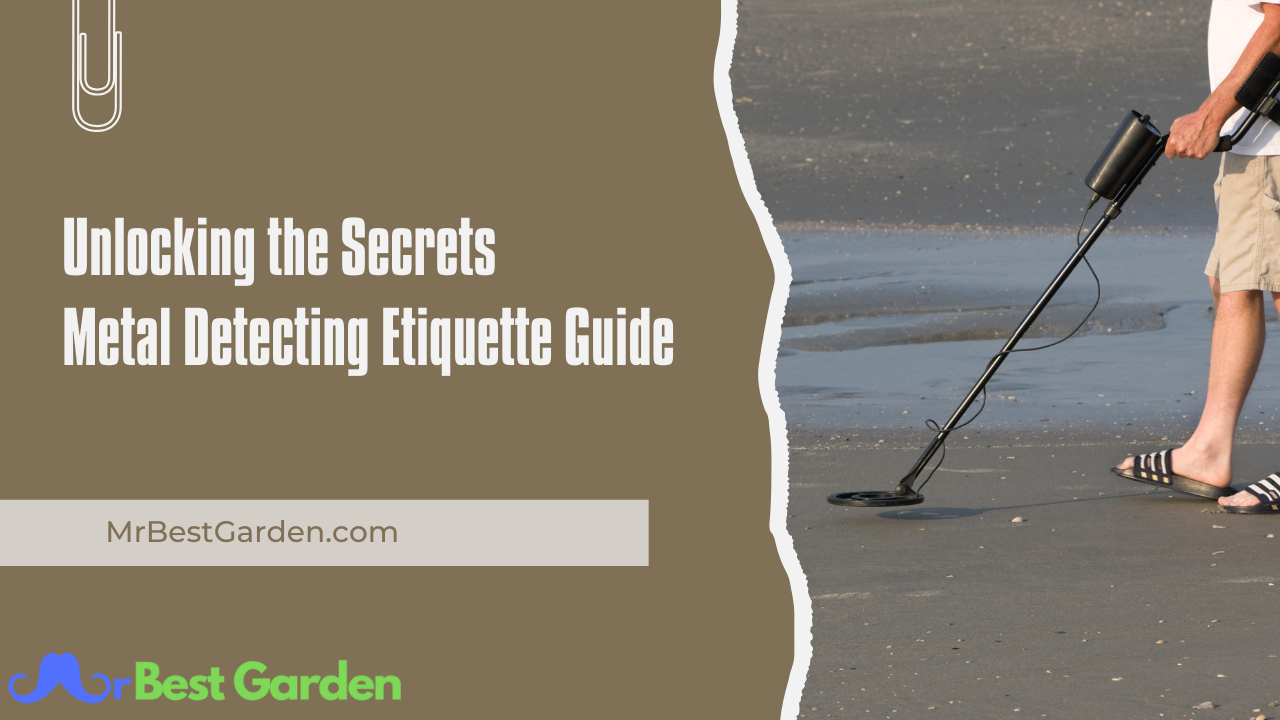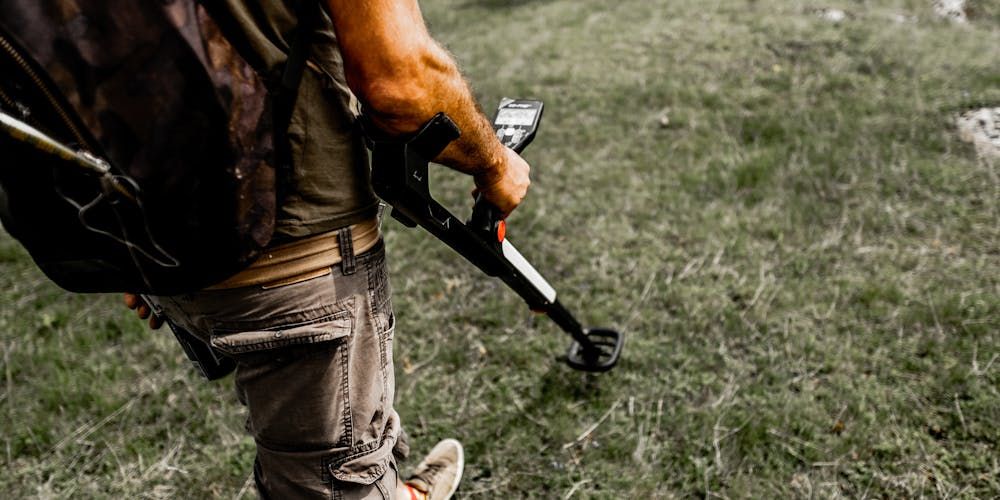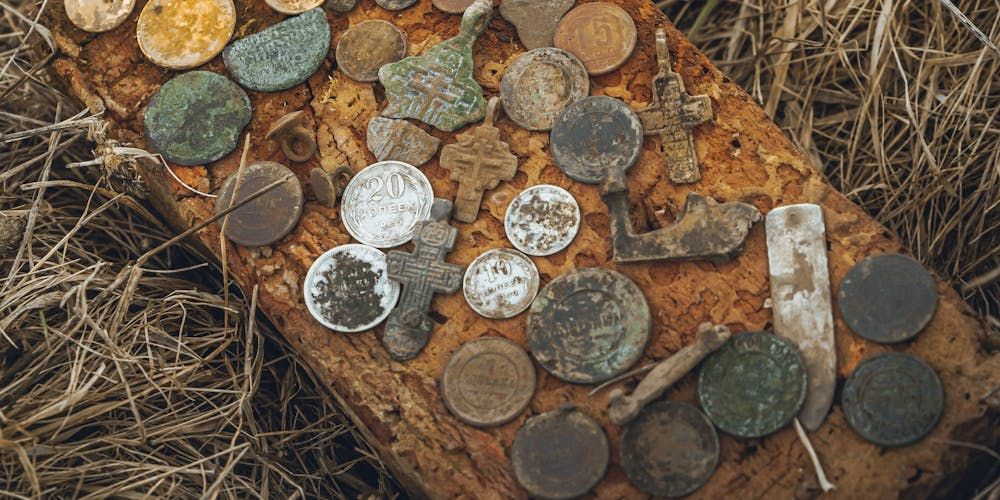Metal detecting etiquette is essential for preserving the hobby and ensuring that everyone involved respects the land, history, and other enthusiasts. Knowing the right behavior helps maintain access to great detecting sites and fosters a positive community around this fascinating pursuit.

Metal detecting etiquette is essential for preserving the hobby and ensuring that everyone involved respects the land, history, and other enthusiasts. Knowing the right behavior helps maintain access to great detecting sites and fosters a positive community around this fascinating pursuit.

Metal detecting etiquette is more than just a set of rules; it's a commitment to preserving the integrity and enjoyment of the hobby for everyone involved. By following these etiquette guidelines, you contribute to a positive environment that benefits both the current and future generations of metal detectorists.
Understanding and respecting property rights is fundamental to metal detecting etiquette. Always seek permission before detecting on private land. This is not only a legal obligation but also a way to build trust with landowners. When you approach them, be polite, explain your interest in history, and assure them that you will leave no trace of your visit.
Moreover, respecting property rights extends to public spaces. Be aware of local regulations and restrictions. For example, some parks might allow metal detecting only during certain hours or in designated areas. Always follow these rules to prevent the hobby from being banned in these locations. Remember, the more responsible we are, the more likely we are to retain our access to these spots.
The principle of "leave no trace" is crucial in metal detecting etiquette. This means that you should fill in any holes you dig, ensuring the land looks as it did before you arrived. This practice is not only courteous but also essential for maintaining access to detecting sites. If people notice disturbed ground, they are less likely to allow metal detecting in the future.
Additionally, take care to remove all trash you find during your hunt. This not only helps keep the environment clean but also leaves a positive impression on landowners and the public. By leaving the site better than you found it, you set a high standard for metal detecting etiquette and contribute to the hobby's positive reputation.
Metal detecting near historical sites requires extra sensitivity and respect. These locations are often protected by law, and unauthorized detecting can lead to legal consequences. Always research the area before you start, and if you're unsure, it's better to avoid detecting altogether.
Moreover, if you find artifacts, leave them in place and report your findings to the appropriate historical authority. This not only respects the historical value of the site but also contributes to our understanding of the past. By showing respect to historical sites, you uphold metal detecting etiquette and preserve the integrity of the hobby.

Responsible treasure hunting goes beyond the basic rules of metal detecting etiquette. It involves a deep respect for the environment, history, and the community of fellow detectorists. By adopting a responsible approach, you ensure that the hobby remains enjoyable and sustainable for everyone.
Environmental stewardship is a key aspect of responsible treasure hunting. This means being mindful of the natural environment in which you are detecting. Avoid damaging plants, and be cautious around wildlife. If you see any endangered species, move to another area to avoid disturbing them.
Additionally, always carry a bag to collect any trash you find during your hunt. This helps keep the environment clean and shows that metal detectorists are a positive force in the community. By taking care of the environment, you contribute to the long-term sustainability of the hobby.
Sharing your knowledge and finds is another important aspect of responsible treasure hunting. By teaching others about proper techniques and etiquette, you help ensure that the hobby continues to thrive. Consider joining a local metal detecting club or participating in online forums to share your experiences and learn from others.
When you make a significant find, consider sharing it with the community or donating it to a local museum. This not only enriches the hobby but also contributes to the historical record. By sharing your finds responsibly, you help foster a sense of community and appreciation for the hobby.
Respecting fellow detectorists is essential for maintaining a positive and supportive community. Always be courteous and considerate when others are detecting nearby. Avoid encroaching on someone else's search area, and if you're unsure, ask if they mind if you detect nearby.
Moreover, if you find an item that might belong to another detectorist, make an effort to return it. This builds trust within the community and contributes to a positive atmosphere. By showing respect to your fellow detectorists, you help create a supportive and enjoyable environment for everyone.

Leave no trace metal detecting is a principle that emphasizes minimal impact on the environment. By following this principle, you ensure that the sites you visit remain pristine and accessible for future generations of detectorists. It's a commitment to ethical and responsible treasure hunting.
Proper hole digging and filling is the cornerstone of leave no trace metal detecting. Always use a digging tool that allows you to remove a plug of grass or soil neatly. This makes it easier to replace the plug when you're done, leaving the site as you found it.
After removing the target, take the time to fill in the hole completely and replace the plug. Pat the soil down gently to ensure it's level with the surrounding area. This not only helps the grass or plants recover but also prevents anyone from accidentally stepping into the hole. By following this practice, you contribute to the preservation of the detecting site.
Carrying out trash is another critical aspect of leave no trace metal detecting. Always bring a bag with you to collect any trash you find during your hunt. This includes not only the trash you dig up but also any litter you come across while detecting.
By removing trash from the site, you help keep the environment clean and show that metal detectorists are responsible stewards of the land. This practice also leaves a positive impression on landowners and the public, making them more likely to allow metal detecting in the future. By carrying out trash, you uphold the principles of leave no trace metal detecting.
Educating others about leave no trace metal detecting is essential for spreading the practice within the community. If you see someone not following these principles, approach them politely and explain the importance of leaving no trace. Share your own experiences and the benefits of responsible treasure hunting.
Additionally, consider leading workshops or demonstrations on leave no trace metal detecting. By teaching others, you help ensure that the hobby remains sustainable and enjoyable for everyone. Through education, we can all contribute to the preservation of our detecting sites and the integrity of the hobby.
Metal detecting etiquette encompasses the rules and best practices that ensure the hobby remains enjoyable and sustainable for everyone. It includes respecting property rights, leaving no trace, and being considerate of historical sites and fellow detectorists.
Responsible treasure hunting is important because it ensures that the hobby remains sustainable and enjoyable for future generations. It involves environmental stewardship, sharing knowledge and finds, and respecting fellow detectorists.
Leave no trace metal detecting means minimizing your impact on the environment by filling in holes, carrying out trash, and leaving the site as you found it. It's a commitment to ethical and responsible treasure hunting.
To respect property rights, always seek permission before detecting on private land. Be polite and explain your interest in history. In public spaces, be aware of local regulations and follow them diligently.
Sharing your finds with others enriches the hobby and contributes to the historical record. By sharing your knowledge and significant finds, you help foster a sense of community and appreciation for metal detecting.
Metal detecting etiquette, responsible treasure hunting, and leave no trace metal detecting are essential principles that ensure the hobby remains enjoyable and sustainable for everyone. By respecting property rights, leaving no trace, and being considerate of the environment and fellow detectorists, we contribute to a positive and supportive community. Through education and responsible practices, we can all help preserve the integrity and enjoyment of metal detecting for future generations.